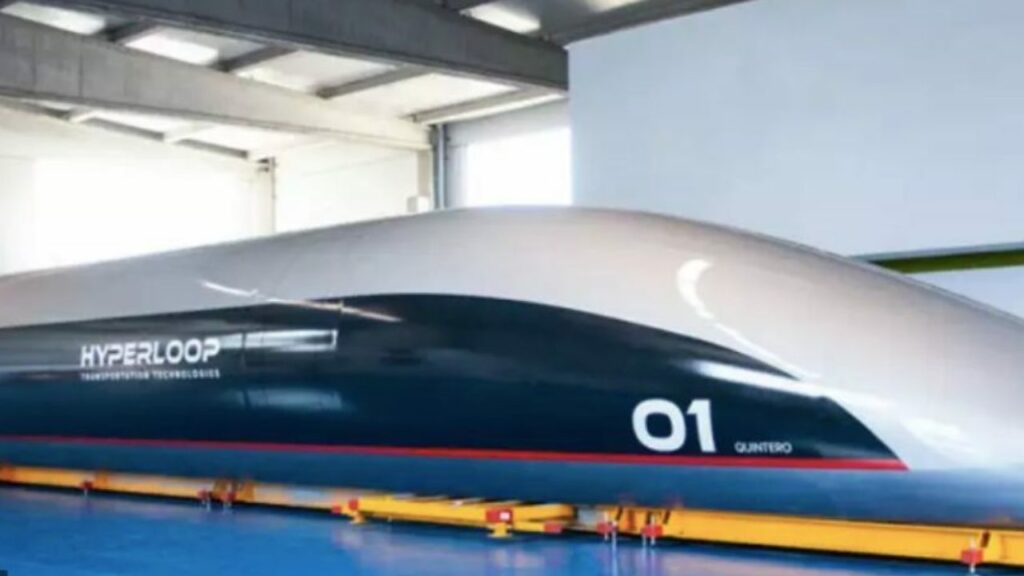The Mumbai-Pune Hyperloop, India’s inaugural venture into ultra-high-speed transportation, aims to reduce travel time between the cities to just 25 minutes. Set to become operational by 2029, this project promises speed, sustainability, and economic growth, but faces technological, regulatory, and affordability challenges.

Hyperloop: Redefining Travel
The Hyperloop system uses pods propelled through low-pressure tubes at incredible speeds, offering a faster, safer, and greener alternative to conventional transit. Key features include:
- Speed: A commute of under 25 minutes between Mumbai and Pune.
- Safety: Lower risks compared to traditional modes of transport.
- Sustainability: A significant reduction in carbon emissions.
Development Progress: Led by Quintrans Hyperloop
Pune-based Quintrans Hyperloop spearheads the technological innovations for this ambitious project.
- Concrete Tubes: Patent-pending designs ensure durability and operational efficiency.
- Linear Motors: Capable of handling over 1-tonne payloads, featuring India’s first custom track-based linear motor controllers.
- Future Developments: Magnetic levitation modules are being designed to further enhance speed and efficiency.
Phased Deployment
The project will begin with a cargo-first approach, with commercial operations expected by 2029. Passenger services will follow after the successful rollout of cargo routes.
Cost and Affordability
Projected ticket prices for the Hyperloop range from ₹1,000 to ₹1,500, offering a middle ground between:
- Pune-Mumbai Flights: ~₹3,000
- Vande Bharat Train: ~₹750
The Hyperloop aims to combine air travel’s speed with rail’s cost-effectiveness.
Advantages of the Mumbai-Pune Hyperloop
- Time Savings: Travel in just 25 minutes compared to the 3-4 hours by car or train.
- Eco-Friendly Transit: Reduced carbon emissions and energy consumption.
- Economic Impact: Boosts in trade, tourism, and commerce between Mumbai and Pune.
- Traffic Decongestion: Eases the load on highways and traditional rail systems.
Challenges on the Road Ahead
- Technological Refinements: Magnetic levitation and vacuum systems require further innovation.
- Regulatory Approvals: Navigating legal and environmental hurdles will be critical.
- Affordability: Balancing high-speed infrastructure costs with ticket pricing.
- Infrastructure Scaling: Ensuring a robust and expansive Hyperloop network.
The Mumbai-Pune Hyperloop is a pioneering step in modernizing India’s transport infrastructure. If successful, it will set a global precedent for sustainable, ultra-fast inter-city travel while aligning with India’s vision for innovation and connectivity.
4o











